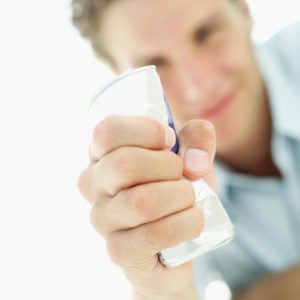 We have all been in a situation where we feel run down and could use a “pick-me-up.” Oftentimes, that comes in the form of a product that is advertised to give us an energy boost. For a lot of people, energy drinks come to mind when they feel they could use some extra stimulation, but this product may be causing us more harm than good.
We have all been in a situation where we feel run down and could use a “pick-me-up.” Oftentimes, that comes in the form of a product that is advertised to give us an energy boost. For a lot of people, energy drinks come to mind when they feel they could use some extra stimulation, but this product may be causing us more harm than good.
Energy drinks are bad for your health
A new review of current scientific knowledge on energy drinks finds their short-term benefits may be outweighed by serious health risks. These may include risk-seeking behavior, mental health problems, increased blood pressure, obesity, and kidney disease.
Advertisement
“The evidence suggests they are harmful to health and should be limited through more stringent regulation by restricting their sales to children and adolescents, as well as setting an evidence-based upper limit on the amount of caffeine,” says Dr. Josiemer Mattei, assistant professor of nutrition based at the Harvard T.H. Chan School of Public Health, Boston, U.S.
Despite what energy drink advertisements say, the main ingredient providing the “energy boost” is caffeine, with many energy drinks containing up to 100mg of caffeine per fluid ounce. This is eight times more than a regular coffee, which contains about 12mg per fluid ounce.
It’s currently recommended that healthy adults consume no more than 400mg of caffeine per day, but little research has been done to find tolerable consumption levels for adolescents and children. This is most concerning, as the marketing of these energy drinks often portrays their product as being healthy, improving energy, stamina, concentration, and athletic performance while being consumed by young people.
Linked to several negative effects
The amount of sugar in these beverages is also a concern as they may contain as much as a can of soda. High levels of both sugar and caffeine may lead to an increased likelihood of substance misuse, aggression, and mental health problems such as anxiety and stress. These complications extend to increased blood pressure, obesity, kidney damage, fatigue, stomach aches, and irritation.
Advertisement
Furthermore, energy drinks are increasingly being mixed with alcohol, making it more difficult to recognize inebriation and leading to excessive alcohol consumption. This increases the risk of dehydration and alcohol poisoning.
The researchers would like to expand their study into other ingredients that energy drink manufacturers claim provide an effect on energy, such as taurine. They hope that the current knowledge on the effect of energy drinks will help inform the general public and influence changes in policy.
Related: Common drink puts your heart at risk
